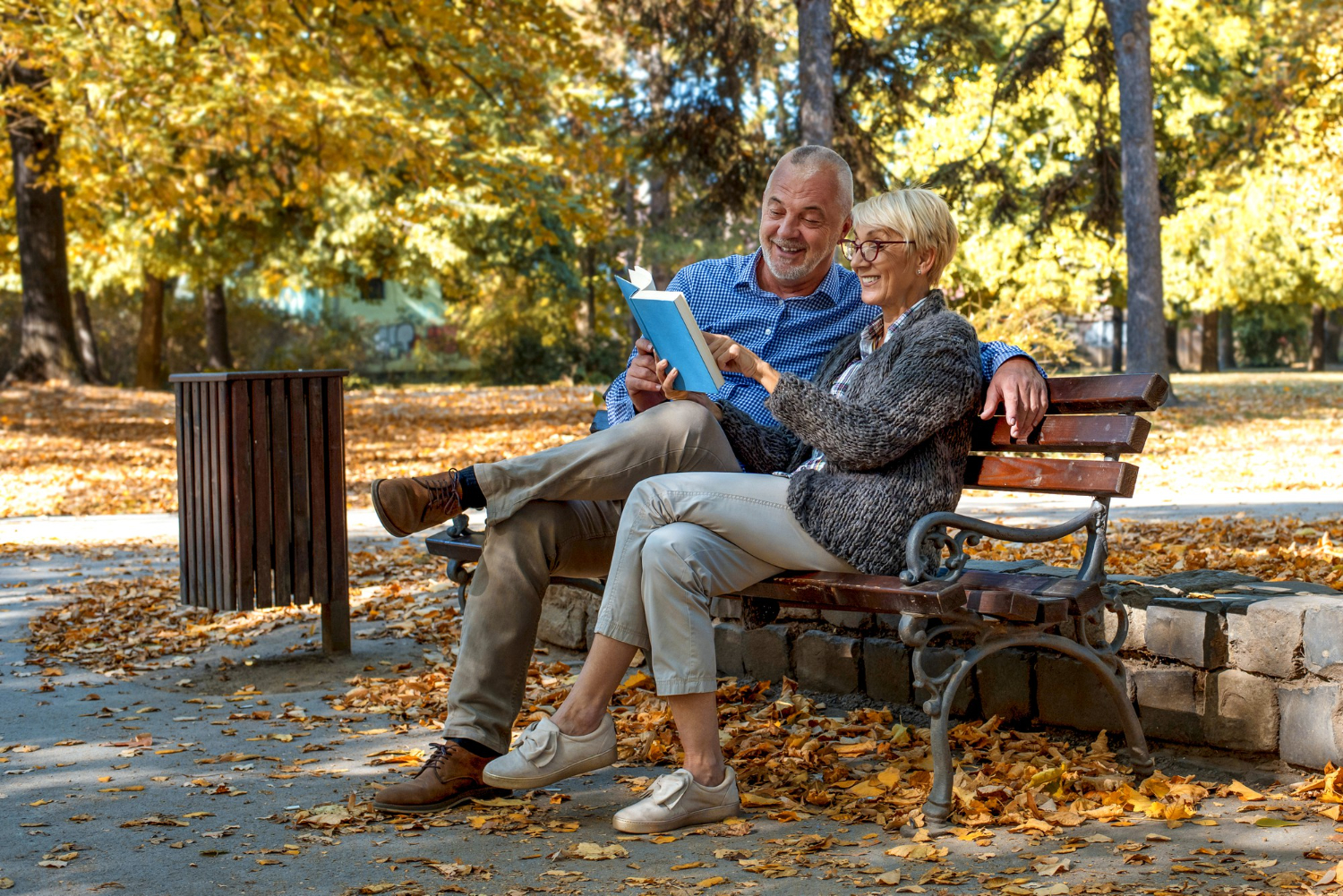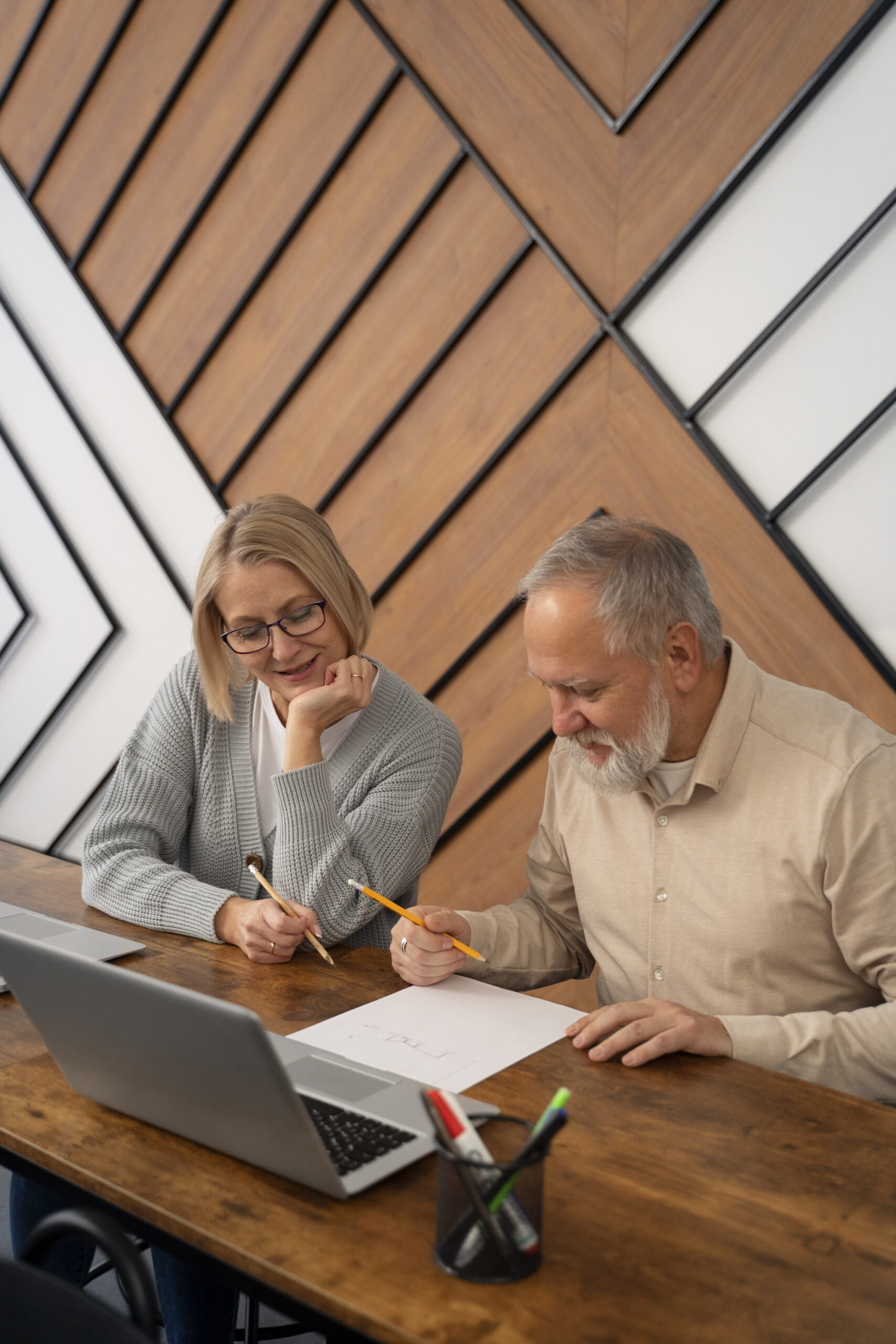Third Age University
Third Age University (UTW) was established by the Senate of the Wroclaw University of Economics and Business in 2008. It started with 150 listeners and now has 230 participants.
UTW focuses on activating seniors through lectures in various fields, computer and language instruction, as well as sports and art activities. In addition, it offers 17 interest sections, such as choir, haiku, culture, medicine, fashion, sports and volunteering.

Important information


SUMMER SEMESTER 2023/2024
- SUMMER SEMESTER:
as of 01.03.2024. until 07.06.2024.
SCHEDULE OF CLASSES IN CREATION IN THE SUMMER SEMESTER 2023/2024
| Monday | Tuesday | Wednesday | Thursday | Friday |
| 09:00 – 09:45 Spine prevention gr. 1 SWFIS | 09:00 – 09:45 Exercises with music gr. 3 | 09:00 – 09:45 Spine prevention gr. 3 SWFIS | 09:45 – 11:15 English p. Hanna Wysocka gr. 1 Room 4 SJO | 09:45 – 11:15 Spanish language p. Bittner gr. 1 beginner room 3 SJO |
| 09:45 -10:30 Spine prevention gr. 2 SWFIS | 09:45 – 11:15 Yoga SWFIS | 09:45 -10:30 Prevention of the spine gr. 4 SWFIS | 09:45 – 11:15 English gr. 2 p. Wysocki room 506 E | 10:00 – 11:30 Section meetings room 406 E |
| 09:45 – 11:15 Computer classes room 121 Z p. Furmanowska fortnightly gr. 1-04.03.2024 gr. 2-11.03.2024 | 09:45 – 11:15 Spanish language p. Bittner gr. 2 beginner room 3 SJO | 09:30 – 10:15 Pool Gymnastics in water gr. 3 + swimming gr. 3 | 11:30 – 13:00 English p. Hanna Wysocka gr. 0 Room 4 SJO | 11:45 – 13:30 room 3, building. P LECTURE AUDITORIUM |
| 10:00 – 11:30 Memory Training continuation gr. classes every week for 2 months Room 406 E | 10:15 – 11:00 Pool Gymnastics in water gr. 4 | 11:30 – 13:00 German Conversations p. Myszka Krystyna Room 12 SJO | 15.00 – 15:45 Sports activities gym gr. 1, exercises with music gr. 1 swimming gr. 1, Gymnastics in water gr. 1 SWFIS | |
| 11:45 – 13:15 Memory Training beginner group classes every week for 2 months Room 406 E | 11:30 – 13:00 English continuation gr. p. Tomaszewski Room 402 E (there will be different rooms during the semester) | 11:30 – 13:00 Computer classes p. Gajny gr. A1 room 120 Z | 15.45 – 16.30 Sports activities gym gr. 2, Exercises with music gr. 2, swimming gr. 2, gymnastics in water gr. 2 SWFIS | |
| 11:30 – 13:00 computer classes room 121 Z p. Furmanowska fortnightly gr. 3-04.03.2024 gr. 4-11.03.2024 | 13:15 – 14:45 German p. Zuzanna Anusiewicz Room 23 S | 13:15 – 14:45 Spanish language p. Bittner continuation gr. room 31 SJO | ||
| 11:30 – 13:00 English gr. A0 p. Kopaczewska Room 23 S | 17:00 – 20.00 Choir: room 214 A |
SJO – Study of Foreign Languages – building on Drukarska Street
SWFIS – Study of Physical Education and Sports – building across the street . Stone
A, E, P, Z, H – designations of buildings on campus
LECTURES SUMMER SEMESTER 2023/2024
| March 08, 2024 | Dr. Dariusz Lewera | Wroclaw pioneers of world medicine | Vice President of the Polish Society for the History of Medical Sciences |
| March 15, 2024 | Dr. Marek Krajewski | On the art of writing by personal example Note: The lecture will be held at the Center for Continuing Education /CKU/ at ul. 43/59 Kamienna Street | Polish writer and classical philologist, specialist in Latin linguistics, doctor of humanities |
| March 22, 2024 | Magdalena Woch, MA | Lower Silesian spas and their secrets | Head of the Museum and Education Department of the Książ Castle in Walbrzych. |
| April 05, 2024 | Prof. dr hab. Agata Mulak | What does the brain have in common with the gut and microbes? | Department of Gastroenterology and Hepatology Medical University of Wroclaw |
| April 12, 2024 | Prof. dr hab. Monika Klimowicz | The European Union facing the challenges of the 21st century | Department of European Economic and Social Integration and Regional Development University of Wroclaw |
| April 19, 2024 | dr n.med. Aleksandra Karykowska | The role of sleep in the prevention and treatment of diseases of modern man | Assistant Professor in the Department of Anthropology Institute of Environmental Biology Wroclaw University of Life Sciences |
| April 26, 2024 | Dr. Magdalena Przysiężna-Pizarska | The tormented soul- zarownice in Silesia in the context of archaeological research | University of Opole |
WINTER SEMESTER 2023/2024 news

News

Contact
Rector’s Representative for the UTW at the WUEB
Dr. Andrzej Bodak
E-mail: [email protected]
Office of the University of the Third Age in the EU branch in Wroclaw
Employee of the UTW Service Section
Building H (first floor), room. No. 8
E-mail: u [email protected]roc.pl
Phone: 71 36 80 916
Events/reports
Szczawno Zdrój historically
Such a shot on March 22, 2024, was presented by Magdalena Woch, from the Scientific Department of the Porcelain Museum in Walbrzych. In January, she hosted UTW with a lecture on Princess Daisy. This time she was exploring the specifics of the city, which was a district of Walbrzych. But Szczawno Zdrój is now a well-known resort, since the turn of the 20th century. Mention of a salt water spring in the village of Salzbrunn, was found in the Book of Henryka, in the 14th century. Three or four centuries later, the first visitors began to descend here. The owners at the time – a prominent family and its representative Konrad von Hochberg – invested in the spa’s infrastructure and researched the discovered waters. They are not saline but treat the systems – digestive and respiratory. Pensions, parks, a promenade, an observation tower, and a wooden spa theater are rapidly being built. Among the visitors M. Woch mentioned – Henryk Wieniawski (festivals named after him are held today), Maria Walewska, Charles May, Ivan Turgenev, Sigmund Krasinski. In the early 20th. century there are 50/60,000 people here annually.
Since 1815, the city has also made money from the sale of mineral water. It is also beginning to be known for its buttermilk treatment of children, thanks to August Samuel Zemplin, who was given the title of spa physician. He built the Mansion (today there is a hotel and restaurant) for medical treatment. During the various stages of development, a pump house and a walking hall (modeled after the Wiesbaden hall, as it was designed by the same architect) were combined, among other things. In 1919, the Grand Hotel, then the most modern in Silesia, was opened. Today it is the No. 1 sanatorium. Then, in 1931, the resort was bought by a construction company, and three years later, it gained state status. And after another 14 years – it received city rights (still as Solice Zdroj). Since 1947, it has been known as Szczawno Zdrój. Interesting fates were interspersed with fires (e.g., the pump house burned down, the Zaścianek sanatorium was demolished) but also positive events. In 1966, a monument to H. Wieniawski was unveiled and the local Church of the Assumption was expanded. M. Woch also provided tidbits about the White Hall Hotel; also active today, which has hosted many renowned people. And she recalled the stories of some of them.
She told the story of the romance between Zygmunt Krasinski and Joanna Bobrova. Although the lovers played in Szczawno Zdroj, they had to part, due to the express prohibition of the writer’s father. There was also no official engagement of another couple. Here Eliza Radziwill’s lack of aristocratic roots, pointed out by the father of her son’s aspiring union, Prince William of Prussia Hohenzollern, stood in the way. This is because he would lose his rights to the throne. And a great love that lasted six years fell apart. But historians and also lovers of Szczawno have something to tell about the resort and the tourists who visit it.
Margaret Garbacz
Music in the atom
Chemistry – an exact science, with a mathematical apparatus. Music – freedom and human imagination. – These are seemingly far apart areas, but there are connections between them. Getting to know them gives me pleasure,” he argued prof. dr hab. Piotr Drożżewski. This engineer-composer and pedagogue graduated from two universities – Wroclaw University of Technology and the Academy of Music. He conducted scientific research and gave concerts. Experts say of him that he sees sounds in chemistry and can play them. On January 26, 2024, he talked about music in chemistry. There is a rich literature on the subject, but the professor focused on interpersonal connections; here he mentioned composers – chemists by training and passion – Alexander Borodin, Edward Edgar and Stanislav Krukowski (a Wroclaw resident). He still presented the issues of transforming physical and chemical measurements into music and – musical harmony. He illustrated everything richly and convincingly. He recalled experiments in which heated elements emit light. Glowing hydrogen with electricity are sounds corresponding to several colors. Similarly – uranium gamma radiation.
Introduced to the nano-world, or extremely small particles, the audience listened with great attention to the vibrations of atoms, which constitute, for example, water, carbon dioxide, nitrates and various minerals. Nano – is a billionth of a meter; the name of the measure comes from Greek. – Motion, deep in matter, produces heat. And from there it’s close to generating sounds. When you establish their order and length, harmony is created. And we have music. A trivial statement is preceded by complex research, building mechanical models of atoms, a palette of measurements. The professor is a remarkable artist, as demonstrated in a video of a certain concert. This element and the entire lecture received rapturous applause.
And now at UTW – the inter-semester break. Making it more interesting, in February, is – going to concerts, plays and even a carnival ball. Classes for the 2023/2024 summer semester will begin on March 4.
Margaret Garbacz
Mysterious daisy
Princess Daisy, or Daisy, earned this nickname due to her extraordinary beauty. But she also had an unexceptional life. Magdalena Woch, head of the Museum and Education Department at Książ Castle, argued on January 19, 2024. – Maria Theresa Olivia, after marrying her wealthy fiancé, Daisy Hochberg von Pless, settled in the castle in 1891, at the age of 18. Her English family had aristocratic roots. And the Duchess first led a life saturated with meetings with renowned and titled personalities. A sure symbol is the string of pearls, more than 6 meters long, bought for her for a crore… The Duchess gave birth to a daughter who died as an infant, followed by three sons. She wrote memoirs but not all of them saw the light of day. A wonderful coloratura soprano, she trained for some time. And she loved music very much.
She was overflowing with abundance, but soon after her marriage she found out that she was not loved. She was bored in the castle, for many hundreds of servants were doing the simplest tasks for her. In Lower Silesia, she is known not only for her beautiful image, valuable connections, but also for her many passions. During the lecture, M. Woch, not sparing the secrets she discovered. Daisy’s interesting life has been reflected in many books and films. Especially since the duchess had a socialist streak. She established milk stations for children (preventing high infant mortality), lace schools (such social cooperatives), and schools for disabled children. She organized Christmas celebrations for the poor. It took care of the cleanup of the Fuller River. These are just some of its useful activities. She was loved for them by her contemporaries, and is appreciated by historians. Various clues as to where she is buried; are still not definitively clarified. She died in 1943, the day after her seventieth birthday.
The Książ Castle will always be associated with Princess Daisy, as will the one in Pszczyna, where she also lived. These are the husband’s assets. A worldly man, albeit a bit in a different sense… Probably, in order to make amends for his misdeeds, even before the divorce, he gave her the winter garden, today’s Palm House. But did he give her a happy life?
Margaret Garbacz
Mature psyche
– If you feel bad and have a worse mood – you should change it. She argued prof. dr hab. n. med. Joanna Rymaszewska, head of the Department of Clinical Neuroscience at the Faculty of Medicine, Wroclaw University of Technology. Experienced psychiatrist (theoretician and practitioner), academician. – Depression causes illnesses; they cause depression. Feedback. – With depressive symptoms come anxiety disorders, she explained, during a lecture on January 12, 2024. – Problems with sleep, irritability, anxiety, decreased concentration, fatigue appear. The basic advice is not to stop the drugs when the patient feels better. Do not give in to negativity in cognitive functions. With them go various diseases. An elderly person may experience fear of falling, trembling, dizziness, and a refreshing of past traumas. Recently, specialists have been engaged in analyzing the so-called “”new” technologies. unexplained medical symptoms. Among doctors and patients, for example, one hears about irritable bowel syndrome
Mental health disorders produce bodily symptoms that often require lengthy diagnosis. Beware of the consequences of taking medication, as the effect of some can be depressive symptoms. Keep this in mind and tell doctors. The professor urged people to acknowledge chronic pain; not to ignore it, as it does not have to be the result of a specific injury, and is associated with depression. Yes, to it some patients have a genetic tendency. – But in all pain there is an emotional component, so you need to take care of your well-being – eat well, be physically active and, above all, take care of your social relationships. Take them up and nurture them. According to research – loneliness is half hereditary and half environmental. It is also worth reaching for new challenges and learning new things. The Institute of Mental Health has developed a list of eight steps. There are questions and answers on it that generate improvement: what you can do to feel better; learn to be with yourself and look inside yourself; learn to be with others and practice networking; don’t change everything at once; develop interests; become a volunteer. It is up to each of us to overcome our weaknesses and demonstrate in resolve and action the desire to change.
Margaret Garbacz
It’s time for railways
The first meeting in 2024, on January 5, had a historical character. Witold Olszanski, a UTW student, absorbed in many passions: history, sailing, tourism, talked about the history of the Lower Silesian railroads. A former employee of banking and telecommunications. – The first horse-drawn railroad in the world was established in 1801, in Great Britain, and the steam locomotive appeared 24 years later – he began the lecture, saturated with facts and maps. – The creation of railroads has always been determined by economic, political and military and strategic considerations. In Lower Silesia the backbone of this means of transportation dates back to 1842. Individual lines, built by a number of companies and societies, have been discussed. More and more new routes were created and connected to existing ones. The network was getting denser and in the 1870s the expansion of the Wroclaw railroad junction became a necessity. At the same time, viaducts and bridges were being erected, as well as engineering structures – embankments, tunnels, etc. The landscape was changing, towns and their residents were being connected (not just symbolically). The years 1914 – 1938 were the time of electrification of connections. And the earlier changes had already yielded beautiful railway stations in many cities of the region (e.g. Wroclaw, Walbrzych, Zgorzelec, Swidnica, Jawor, Trzebnica, Ząbkowice Śląskie and modernization under the so-called railway station investment program – in the past few years). The advantages of the development of railroads in the late nineteenth and twentieth centuries are undeniable: reduced travel time, improved comfort, development of postal services and tourism, reduced travel costs and integration of stations into the circulation of urban services. There are numerous examples that it is not only the unusual architecture that draws attention, but more recently – also the often new cultural functions of railroad stations.
Margaret Garbacz
It’s the turn of the 100-year-old
Wladyslawa Poczatko, a former UTW student at the EU, celebrated 100 years. The celebration, on January 4, 2024, had an unforgettable run. The birthday girl, in excellent shape, blew out the candles on the cake. She answered questions, advising keeping in touch with people and constant movement. Her twin sister passed away five years ago. Also – an excellent age. Mrs. Wladyslawa, in her long and professionally rich life, was an actress in theaters in Gorzow and Opole after the war. Then she passed her studies at the Wroclaw University of Technology. As a civil engineer, she worked at the City Design Bureau (inspecting projects from 1958 to 1975) and was active in the central chamber of engineers, in the capital. The sympathetic ceremony was attended by Prof. Edmund Cibis, EU Vice-Chancellor for Student Affairs and Education, Dr. Andrzej Bodak, Rector’s Plenipotentiary for UTW at the EU, and representatives of the Student Government. We all extend our congratulations and wishes for health and prosperity to the Jubilarian!
Margaret Garbacz
Holiday gifts
Quite a few of them: first the Living Word Group, with limericks by Wislawa Szymborska, followed a while later by a poem performed by Barbara Dziewięcka-Figiel and a presentation of her book (“The House under the Linden Tree”; she wrote it together with Gasela Herrmann), and then a performance by the UTW choir at the EU Apasjonata, under the direction of Kornelia Pukacka. Dr. Andrzej Bodak – the Rector’s Plenipotentiary for the Rector’s Office. UTW and Krystyna Myszka, Vice President of the Presidium of the Local Government welcomed special guests from the Marshal’s Office. Then the image aspects of promoting activities of seniors and for seniors, i.e. a description of the publication, issued to crown the celebration of the 15th anniversary of UTW, was presented by Małgorzata Garbacz – its author. The first copy of the publication titled. “Image Paragraphs 2” was awarded to Marcin Krzyzanowski, Deputy Marshal of the Lower Silesian Province. They were also presented to Amelia Dymarek, Deputy Director of the Lower Silesian Social Policy Center. This was a token of thanks for the support of this publication from the budget of the Lower Silesian Province. The publication includes accounts of the more than 40 academic semesters completed in the past four. open lectures. It is a kind of gallery of notables, as it was delivered by well-known, competent specialists who shared their professional experiences and passions. It is always worth disseminating people and issues that inspire and stimulate intellectual development.
Mr. Marshall spoke about the provincial budget for next year. – Record pro-investment, reaching 3 billion zlotys,” he stressed. In each area (transportation, health care, agriculture and environmental protection, culture, education, science, social integration, support for regional development, physical culture and tourism – outlays and expenditures exceed this year’s. – And on top of that, the budget is created without borrowing. M. Krzyzanowski characterized many funding directions, giving specific examples. Asked what their guiding idea, or metaphorically a marketing slogan, might be, he pointed out that Lower Silesia is populated by an ambitious society with equal opportunities for development, as reflected in next year’s budget.
Guests and seniors listened to a continuation of the choir’s pre-Christmas concert. The surprise was the carol “When the lovely maiden”, which was sung by the lady conductor. The choristers recently won the Silver Band – Diploma II. National Festival of Choral Patriotic Songs, in Poznań (18.11.2023). And Kazimierz Kudrynski received a Special Award for his solo interpretation of “Jędrusiowa doli.” Twenty teams took part in the festival. Apasjonata is planning several concerts in January, in various halls in Wroclaw. In a singing mood, the listeners were still given tickets to the theater by Mr. Marshall. At the end of the pre-Christmas meeting – they “treated” themselves to an anniversary publication and sweets. Everyone wished each other a happy Christmas and a prosperous New Year.
Margaret Garbacz
Time passing in the eyes
Geriatrician Izabela Wroblewska, MD, December 8, 2023, discussed physiological changes in vision. – Those occurring with age, she said, include loss of the eye’s accommodative ability, lack of vision at various distances, and correction with glasses (for nearsightedness and reading). The changes occur gradually, starting around age 40. She then compared old-type glasses with newer ones – progressive glasses. The latter are better but one has to get used to them. They should be selected “at the limit of the defect” (neither weaker nor stronger).There is also surgical correction to be used in individual cases, she explained.
Among the diseases of senior age, she listed dry eye syndrome, cataracts, macular degeneration and glaucoma. She then discussed each of them. The first manifests itself as irritation, increased itching, and tearing. This discomfort is exacerbated; for example, evening fatigue projects into poorer TV viewing. Poor eyesight causes anxiety and unpleasant feelings about quality of life. Regardless of the stages of this ailment, the eyes should be regularly moistened (first – with saline).
Cataracts are the result of clouding of the lens. It can progress rapidly or be the same all its life. A distinction is made between incipient cataracts (single opacities, usually peripheral, thickening of the lens nucleus, brown color and near-normal acuity), immature cataracts, mature cataracts and overripe cataracts. The second – should already be a signal to contact an ophthalmologist. Clouded vision is a typical symptom but there is no prophylactic treatment for this condition. The doctor warned that the drugs offered and advertised give subjective improvement.
Macular degeneration is associated with poorer color, contour and contrast vision and acuity (in the center of the visual field). Diagnosed from this angle, patients observe the phenomenon of wavy straight lines. The research is multi-elemental, including with specialized equipment. Glaucoma, on the other hand, leads to damage to the optic nerve. It impairs retinal cells to the point of vision loss. Quite characteristic is excessive eyeball pressure. In glaucoma, vision is worse outside the eyeball.
But there are no clear-cut prescriptions for all gazing infirmities in seniors. – Each case must be handled individually,” stressed the lecturer, an advocate of a holistic approach to treating patients, for which she received warm applause.
Margaret Garbacz
The finale of the 15th anniversary of the UTW
The culmination of the celebration of the 15th anniversary of the EU’s UTW is a publication about open lectures for listeners. More than 40 such meetings were held during the four academic terms in 2021 and 2022. They were led by dozens of distinguished specialists who shared their professional experiences and interests. The issues discussed explained and continue to explain the complex processes of social and civilizational development in general, and chart their future. Listeners are helped to understand the processes taking place in the surrounding reality. This brings a large dose of calmness and taming of volatility.
Lectures are always an excellent basis for analyzing many issues. Those of the past four semesters had unique strengths: not only a variety of topics but also – a high level. And collected in book form – they are documentation of the work of the Student Government, which carefully selects and has selected lecturers and topics. He thoughtfully and boldly creates this offering each semester. And the EU’s UTW stands for self-governance. Listening to the expectations of the audience and then fostering this means that the attractiveness of the activities depends on the seniors themselves and their proposals. A civic, community approach bears good fruit.
These are the reasons for collecting and editing the most important lectures. Heartfelt thanks for fostering this initiative go to Dr. Andrzej Bodak, Plenipotentiary of the Rector of the EU for the Promotion of the Environment. UTW and the Student Government, with Danuta Grudzień, chairman of the presidium, and Irena Dras, originator of many of the lectures, vice chairman of the presidium.
All lecture reports were posted on the EU’s UTW web portal. Their author is Malgorzata Garbacz. Journalist, press and image manager. Awarded the Golden Pen and the title of Journalist of 2021. The University’s portal and publications about what the University of the Third Age lives – is an excellent platform for popularizing not only good practices but – simply – the interests of seniors. To all who think this way we extend our heartfelt thanks. They are also addressed to the Local Government of the Lower Silesian Province. The task was subsidized by his budget. Acknowledgements go to the long-term support of the EU’s UTW, which always motivates to do more and more interesting things for the listeners.
Reading the publication, we hope, will be enjoyable for readers and direct recipients of UTW activities. It will prompt everyone to look for interesting people and topics that describe the surrounding world, its phenomena, trends and developments. That was the intention of the editors and publishers of the…
The task entitled. “Publishing about the intellectual development impulses of the listeners of the University of the Third Age at the Wroclaw University of Economics, thanks to meetings with interesting people and their areas of interest” is also the final chord of the celebration of the 15th anniversary of the UTW at the EU. It was released for the final anniversary in 2023.
Margaret Garbacz



